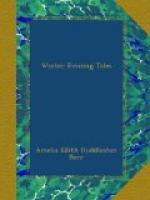The movement originated in the mind of Joseph Livesey, and a short consideration of the circumstances and surroundings of his useful career will give us the best insight into the necessities and influences which gave it birth. He was born near Preston, in Lancashire, in the year 1795; the beginning of an era in English history which scarcely has a parallel for national suffering. The excitement of the French Revolution still agitated all classes, and, commercial distress and political animosities made still more terrible the universal scarcity of food and the prostration of the manufacturing business.
His father and mother died early, and he was left to the charge of his grandfather, who, unfortunately, abandoned his farm and became a cotton spinner. Lancashire men had not then been whetted by daily attrition with steam to their present keen and shrewd character, and the elder Livesey lost all he possessed. The records of cotton printing and spinning mention with honor the Messrs. Livesey, of Preston, as the first who put into practice Bell’s invention of cylindrical printing of calicoes in 1785; but whether the firms are identical or not I have no certain knowledge. It shows, however, that they were a race inclined to improvements and ready to test an advance movement.
That Joseph Livesey’s youth was a hard and bitter one there is no doubt. The price of flour continued for years fabulously high; so much so that wealthy people generally pledged themselves to reduce their use of it one-third, and puddings or cakes were considered on any table, a sinful extravagance. When the government was offering large premiums to farmers for raising extra quantities and detailing soldiers to assist in threshing it, poor bankrupt spinners must have had a hard struggle for a bare existence.
Indeed, education was hardly thought possible, and, though Joseph managed, “by hook or crook,” to learn how to read, write and count a little, it was through difficulties and discouragements that would have been fatal to any ordinary intelligence or will.
Until he was twenty-one years of age he worked patiently at his loom, which stood in one corner of a cellar, so cold and damp that its walls were constantly wet. But he was hopeful, and even in those dark days dared to fall in love. On attaining his majority, he received a legacy of L30. Then he married the poor girl who had made brighter his hard apprenticeship, and lived happily with her for fifty years.
But the troubles that had begun before his birth—and which did not lighten until after the passing of the Reform Bill, in June, 1832—had then attained a proportion which taxed the utmost energies of both private charities and the national government.
The year of Joseph Livesey’s marriage saw the passage of the Corn Laws, and the first of those famous mass meetings in Peter’s Field, near Manchester, which undoubtedly molded the future temper and status of the English weavers and spinners. From one of these meetings, the following year, thousands of starving men started en masse to London. They were followed by the military and brought back for punishment or died miserably on the road, though 500 of them reached Macclesfield and a smaller number Derby.




